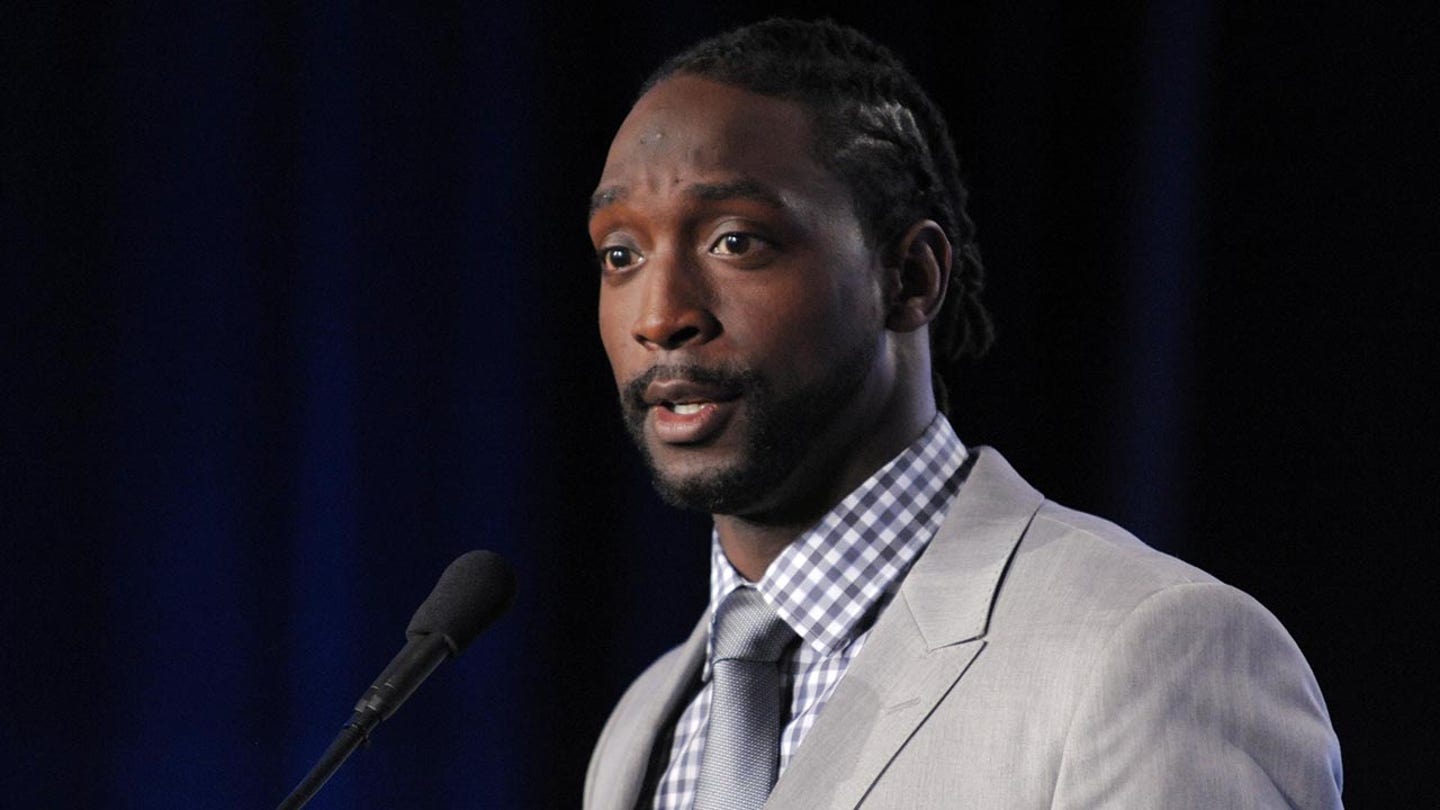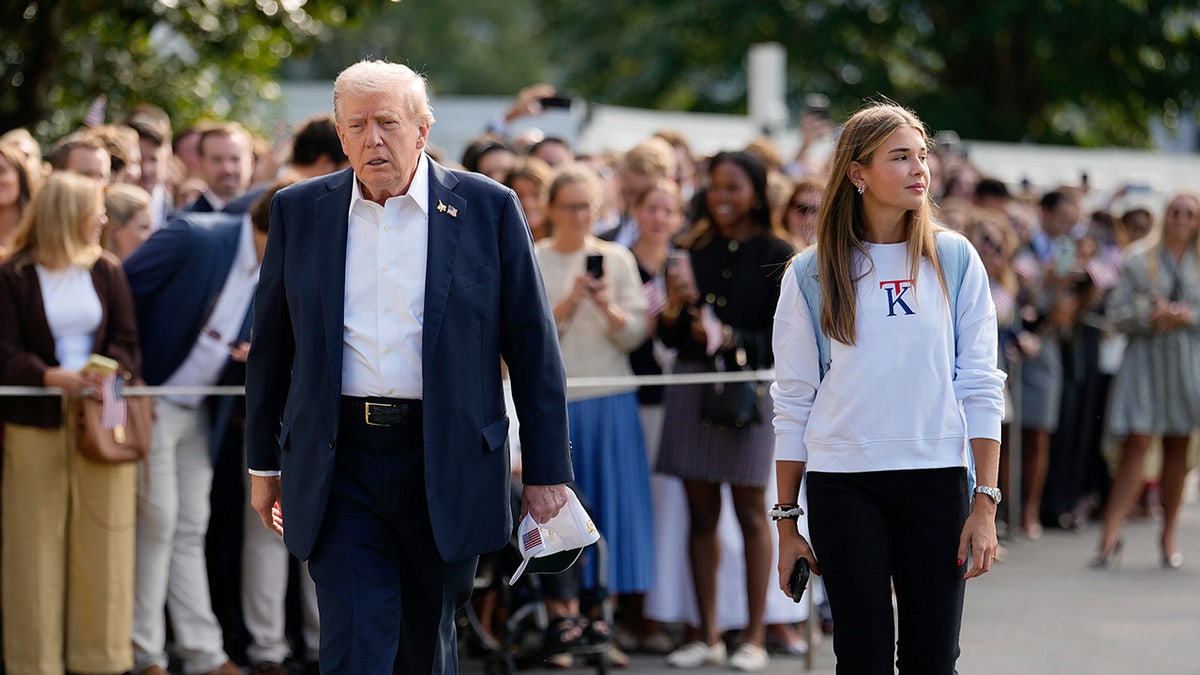
The NBA can’t risk a foul as it returns to its most important overseas market
Entities mentioned:
- NBA: Ambition, Competitive spirit, Influence
- Chinese fans: Enthusiasm, Loyalty, Recognition
- Beijing: Control, Power, Pride
- Daryl Morey: Righteousness, Self-respect, Freedom
- Alibaba: Ambition, Competitive spirit, Influence
- Donald Trump: Power, Influence, Control
Article Assessment:
Credibility Score: 75/100
Bias Rating: 55/100 (Center)
Sentiment Score: 60/100
Authoritarianism Risk: 45/100 (Mixed/Neutral)
Bias Analysis:
The article presents multiple viewpoints and includes expert opinions, showing a balanced approach. However, there's a slight tilt towards emphasizing the challenges and risks faced by the NBA in China.
Key metric: NBA Global Revenue Growth
Let me tell you something - this story is HUGE! The NBA is making a championship-caliber comeback in China, folks! After being benched for years, they're stepping up to the plate in a market that's as hot as a three-pointer at the buzzer. But make no mistake, they're playing on a court where one false move could send them to the penalty box. It's a high-stakes game of geopolitical basketball, and the NBA needs to bring their A-game to avoid fumbling this golden opportunity. They're walking a tightrope tighter than a last-second free throw, balancing their American values against Beijing's rulebook. One slip-up from a player or coach could turn this slam dunk into a costly turnover. The Chinese fans are cheering from the sidelines, but the real MVPs will be the ones who can navigate this political minefield without stepping out of bounds. It's fourth quarter, the clock is ticking, and the whole world is watching to see if the NBA can clinch this win-win situation or if they'll drop the ball on the global stage!

WNBA player Natasha Cloud calls out Israel on Oct 7 while blaming Republicans for government shutdown
Entities mentioned:
- Natasha Cloud: Moral outrage, Righteousness, Influence
- Republicans: Power, Control, Self-preservation
- Democrats: Competitive spirit, Justice, Unity
- Donald Trump: Power, Control, Pride
Article Assessment:
Credibility Score: 65/100
Bias Rating: 70/100 (Lean Right)
Sentiment Score: 30/100
Authoritarianism Risk: 45/100 (Mixed/Neutral)
Bias Analysis:
The article leans right, focusing heavily on critiquing Cloud's left-leaning statements and providing more space for conservative viewpoints. It includes fact-checking that counters Cloud's claims but doesn't equally scrutinize Republican positions.
Key metric: Political Polarization Index
Let me tell you something, folks - this political game is getting INTENSE! We've got Natasha Cloud coming off the bench with a BOLD STATEMENT, trying to score points against the Republicans on healthcare. But hold on to your seats, because this play might be out of bounds! Cloud's attempting a full-court press on Israel's healthcare system, but her shot's getting blocked by fact-checkers faster than a rim rejection! Meanwhile, the Democrats and Republicans are locked in a defensive struggle over the government shutdown that would make any championship series look like child's play. This is the kind of high-stakes match where every move counts, and Cloud's controversial posts are like attempting risky three-pointers - they might score big with her base, but they're also leaving her wide open for counterattacks. We're seeing a political arena that's more divided than a tied game in the final seconds, folks, and I'm telling you right now, this kind of play is going to keep fans - I mean voters - on the edge of their seats!

UFC's Bruce Buffer says it will be an 'honor' to be at White House: 'It's gonna be amazing'
Entities mentioned:
- Bruce Buffer: Enthusiasm, Professional pride, Recognition
- Donald Trump: Legacy, Influence, Recognition
- Dana White: Ambition, Competitive spirit, Legacy
- UFC: Competitive spirit, Ambition, Recognition
Article Assessment:
Credibility Score: 70/100
Bias Rating: 65/100 (Lean Right)
Sentiment Score: 85/100
Authoritarianism Risk: 35/100 (Generally Democratic)
Bias Analysis:
The article leans right due to its positive framing of Trump and the event at the White House. It primarily presents supportive viewpoints without critical perspectives.
Key metric: Pay-Per-View Viewership
Let me tell you something, folks - this UFC White House event is shaping up to be the CHAMPIONSHIP BOUT of all championship bouts! We're talking about a HEAVYWEIGHT clash of sports and politics that's gonna blow the roof off the pay-per-view world! Dana White is stepping up to the plate with the competitive spirit of a true champion, assembling a roster that's got every fighter in the league champing at the bit to get in on this action. This isn't just another fight night, people - this is the SUPER BOWL of MMA, taking place right in the backyard of the most powerful arena in the world! The UFC is playing 4D chess here, making power moves that are gonna change the game forever. Bruce Buffer's enthusiasm is off the charts, and let me tell you, when Buffer's hyped, you KNOW we're in for a slobberknocker! This event is the ultimate tag-team match between sports and politics, and I'm telling you right now, it's gonna be a knockout!

Conor McGregor receives 18-month UFC suspension for 3 missed drug tests in 2024
Entities mentioned:
- Conor McGregor: Competitive spirit, Pride, Recognition
- UFC: Professional pride, Control, Integrity
- Dana White: Ambition, Control, Professional pride
- Donald Trump: Legacy, Recognition, Influence
Article Assessment:
Credibility Score: 75/100
Bias Rating: 50/100 (Center)
Sentiment Score: 40/100
Authoritarianism Risk: 30/100 (Generally Democratic)
Bias Analysis:
The article presents a balanced view of the situation, including statements from multiple parties. It doesn't lean towards favoring or criticizing any particular entity involved.
Key metric: UFC Fighter Availability
Let me tell you something - this story is RIDICULOUS! The Notorious Conor McGregor, once the undisputed champion of the octagon, has just been hit with an 18-month suspension! This is a MAJOR SETBACK for one of the UFC's star players. McGregor's missed drug tests are like fumbling the ball three times in a single game - it's a COSTLY MISTAKE that's left him sidelined until 2026. But folks, don't count him out yet! McGregor's got that championship mentality, and he's already eyeing a comeback on the biggest stage of all - the White House lawn! President Trump is setting up a fight card that could be the Super Bowl of MMA, but Dana White is playing defense, refusing to confirm McGregor's spot. This is fourth quarter drama at its finest, and I'm telling you right now, the next two years are going to be a grueling training camp for McGregor if he wants to step back into the octagon and reclaim his title as the UFC's ultimate fighter!

Ex-ESPN host makes stance on men in women's sports clear: 'We know this is ridiculous'
Entities mentioned:
- Samantha Ponder: Righteousness, Justice, Professional pride
- Donald Trump: Power, Control, Legacy
- NCAA: Self-preservation, Influence, Wariness
Article Assessment:
Credibility Score: 70/100
Bias Rating: 65/100 (Lean Right)
Sentiment Score: 30/100
Authoritarianism Risk: 55/100 (Mixed/Neutral)
Bias Analysis:
The article leans right, focusing on conservative viewpoints and Trump's executive order. It presents transgender athlete participation as problematic without exploring alternative perspectives.
Key metric: Gender Equality in Sports
Ladies and gentlemen, we've got a HUGE matchup on our hands! Samantha Ponder is coming off the bench with a GAME-CHANGING play, folks! She's stepping up to the plate and swinging for the fences on this transgender athlete issue. Let me tell you something - this is a fourth-quarter move that could shift the entire landscape of women's sports! The Trump administration is running a full-court press, demanding schools get in line with Title IX. Meanwhile, the NCAA is playing defense, trying to protect their endzone from controversy. This is a high-stakes game of political football, and Ponder is bringing that championship mentality, refusing to let men compete on the women's team. It's crunch time for women's sports, and these players are leaving it ALL on the field!

ESPN star Paul Finebaum says network axed potential Trump interview in 2019
Entities mentioned:
- Paul Finebaum: Ambition, Professional pride, Recognition
- ESPN: Control, Wariness, Self-preservation
- Donald Trump: Recognition, Influence, Power
- Clay Travis: Curiosity, Competitive spirit, Influence
Article Assessment:
Credibility Score: 75/100
Bias Rating: 55/100 (Center)
Sentiment Score: 35/100
Authoritarianism Risk: 30/100 (Generally Democratic)
Bias Analysis:
The article presents both sides of the story, including ESPN's perspective and Finebaum's disappointment. It maintains a relatively neutral tone while reporting the events, though it does give more space to Finebaum's viewpoint.
Key metric: Media Independence
Let me tell you something - this story is a GAME CHANGER! Paul Finebaum, ESPN's star player, was about to score the interview of a lifetime with the MVP of politics, Donald Trump. But just as he was stepping up to the plate, ESPN pulled him from the game! This is RIDICULOUS! We're talking about a fourth quarter play that could've changed the whole season. Instead, ESPN decided to play it safe and bench their star player. I'm telling you right now, this kind of conservative playmaking is what loses championships. Finebaum was ready to go the distance, but his own team fumbled the ball. This isn't just about politics folks, it's about having that championship mentality and seizing opportunities when they come your way!

Ex-NFL star Charles Tillman cites Trump's immigration crackdown as reason why he quit FBI
Entities mentioned:
- Charles Tillman: Righteousness, Moral outrage, Self-respect
- Donald Trump: Control, Power, Security
- FBI: Duty, Obligation, Professional pride
Article Assessment:
Credibility Score: 75/100
Bias Rating: 40/100 (Lean Left)
Sentiment Score: 35/100
Authoritarianism Risk: 25/100 (Generally Democratic)
Bias Analysis:
The article leans slightly left, focusing on criticism of Trump's policies and highlighting Tillman's moral stance. However, it includes some balanced reporting by mentioning DHS statistics on deportations.
Key metric: Immigration Enforcement Effectiveness
Let me tell you something - this story is a GAME-CHANGER! Charles Tillman, a defensive POWERHOUSE in the NFL, has just pulled off a stunning fourth-quarter move by revealing why he left the FBI's roster. This isn't just a player trade, folks - it's a full-blown MORAL TOUCHDOWN! Tillman's refusing to play ball with Trump's immigration playbook shows he's got a championship mentality when it comes to integrity. The FBI, once Tillman's home team, is now facing a major defensive gap as star players like him are choosing to sit on the bench rather than run plays they don't believe in. This is the kind of locker room drama that can SHAKE UP an entire league! Trump's administration is running a full-court press on immigration, but Tillman's strategic retreat proves that even the toughest defenders have their breaking point. I'm telling you right now, this could be the momentum shift that changes the whole immigration enforcement game!

Donald Trump’s sports-focused second term makes its most appropriate stop at the Ryder Cup and Bethpage Black
Entities mentioned:
- Donald Trump: Recognition, Influence, Pride
- Team USA: Competitive spirit, Pride, Determination
- Team Europe: Competitive spirit, Pride, Professional pride
- Keegan Bradley: Competitive spirit, Loyalty, Professional pride
- Scottie Scheffler: Competitive spirit, Recognition, Professional pride
- Bryson DeChambeau: Competitive spirit, Loyalty, Recognition
- Luke Donald: Professional pride, Competitive spirit, Duty
Article Assessment:
Credibility Score: 75/100
Bias Rating: 55/100 (Center)
Sentiment Score: 65/100
Authoritarianism Risk: 35/100 (Generally Democratic)
Bias Analysis:
The article presents multiple perspectives, including positive and potentially negative aspects of Trump's attendance. While it leans slightly positive, it maintains a relatively balanced tone overall.
Key metric: Presidential Approval Rating
Let me tell you something - this story is RIDICULOUS! The Ryder Cup has turned into a political POWERPLAY, folks! President Trump is stepping up to the first tee like a STAR QUARTERBACK ready to lead Team USA to victory. It's a GAME-CHANGING move that's got both teams FIRED UP! The president is playing 4D chess here, using sports as his ULTIMATE PLAYING FIELD to score points with the American people. He's not just watching from the sidelines - he's right in the thick of the action, showing a CHAMPIONSHIP MENTALITY that's energizing players and fans alike. This is a CRUCIAL FOURTH QUARTER MOVE for Trump's approval ratings, and he's swinging for the fences! The security challenges? Just another OBSTACLE for this political athlete to overcome. Trump's playing on home turf in New York, and he's using every advantage to DOMINATE THE GAME. I'm telling you right now, this Ryder Cup appearance could be the SLAM DUNK Trump needs to solidify his sports-focused strategy and win big with voters!

Trump greets Bryson DeChambeau at Ryder Cup to kick off afternoon session
Entities mentioned:
- Donald Trump: Recognition, Influence, Pride
- Bryson DeChambeau: Competitive spirit, Ambition, Professional pride
- Team USA: Competitive spirit, Unity, Pride
- Team Europe: Competitive spirit, Determination, Pride
- Keegan Bradley: Loyalty, Professional pride, Duty
- Scottie Scheffler: Patriotism, Professional pride, Unity
- Tyrrell Hatton: Enthusiasm, Competitive spirit, Sportsmanship
- Robert MacIntyre: Competitive spirit, Wariness, Professional pride
Article Assessment:
Credibility Score: 75/100
Bias Rating: 55/100 (Center)
Sentiment Score: 65/100
Authoritarianism Risk: 35/100 (Generally Democratic)
Bias Analysis:
The article presents multiple perspectives, including positive reactions from both US and European players. However, there's slightly more emphasis on positive US reactions and Trump's impact.
Key metric: US Sporting Event Attendance
Let me tell you something, folks - this is a GAME-CHANGER! The Commander-in-Chief is stepping up to the tee box of international competition, and it's sending shockwaves through the Ryder Cup! Trump's surprise appearance is like a clutch substitution in the fourth quarter, energizing Team USA when they needed it most. We're seeing a championship mentality from both sides as they navigate this high-stakes diplomatic sand trap. DeChambeau's cannon of a drive set the tone, but now it's a whole new ballgame with the President in attendance. This is the kind of fourth-quarter drama that defines legends, folks! The players are feeling the pressure, knowing the leader of the free world is watching their every swing. It's crunch time, and we're about to see who's got the guts to sink the winning putt in this geopolitical putting contest!

Team Europe takes early lead at 2025 Ryder Cup with President Donald Trump in attendance
Entities mentioned:
- Team Europe: Competitive spirit, Determination, Unity
- Team USA: Pride, Ambition, Competitive spirit
- Donald Trump: Recognition, Influence, Power
- Luke Donald: Strategy, Professional pride, Determination
- Keegan Bradley: Enthusiasm, Loyalty, Competitive spirit
- Rory McIlroy: Competitive spirit, Determination, Professional pride
Article Assessment:
Credibility Score: 75/100
Bias Rating: 55/100 (Center)
Sentiment Score: 65/100
Authoritarianism Risk: 20/100 (Strongly Democratic)
Bias Analysis:
The article presents a relatively balanced view of both teams, with slightly more positive framing of Europe's performance. Quotes and observations from both sides are included, maintaining overall neutrality.
Key metric: Ryder Cup Performance
Let me tell you something - this Ryder Cup is turning into a BLOWOUT! Team Europe is bringing their A-game and Team USA is looking like they forgot to show up to spring training! The Europeans are executing their game plan to perfection, while the Americans are fumbling around like rookies at their first combine. Rory McIlroy is playing like he's got ice in his veins, sinking clutch putts and silencing the crowd like a true road warrior. Meanwhile, world number one Scottie Scheffler is looking more lost than a long snapper in a quarterback competition. The Europeans have clearly done their homework, prepared for the hostile New York crowd, and are playing with the unity of a championship squad. Team USA needs to wake up and start playing like they want to win, or this could turn into a rout of epic proportions. It's still early, but right now Europe is running up the score and USA is in desperate need of a momentum-shifting play to get back in this game!